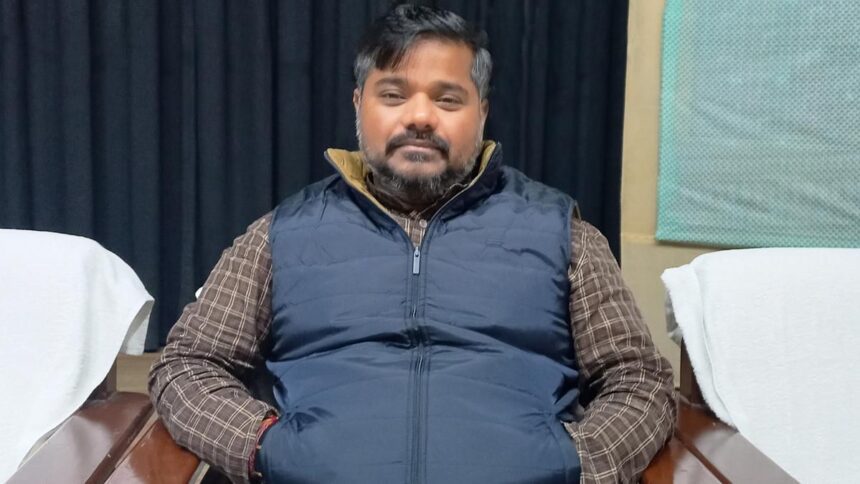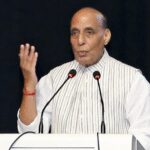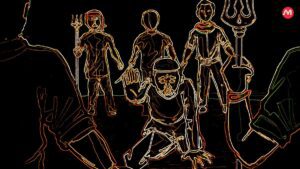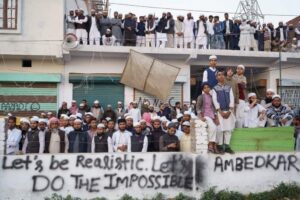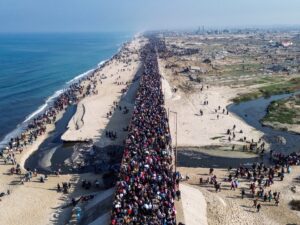Tripura’s connectivity initiatives with Bangladesh, specifically the Agartala-Akhaura rail link and the Maitree Bridge, face potential delays due to political upheaval and a government transition in Bangladesh, according to state Transport Minister Sushanta Chowdhury.
Following the ousting of Sheikh Hasina’s Awami League government on August 5 amid widespread protests regarding a contentious job quota system, an interim government led by Muhammad Yunus has taken charge. Chowdhury noted that while most connectivity projects with Bangladesh were nearing completion, there is uncertainty about their launch timelines.
“All connectivity projects with Bangladesh, which were nearly finished, now have uncertain start dates. The Agartala-Chittagong flight, initially scheduled to begin soon, is now also in doubt. The same goes for the Agartala-Akhaura rail link and the Maitree Bridge,” Chowdhury told PTI, emphasizing the need to “wait and watch.”
The Agartala-Akhaura rail link, measuring 12.24 kilometers and costing approximately ₹972.52 crore, aims to enhance trade between India’s Northeast and Bangladesh. Raman Singh Singla, general manager of Indian Railway Construction Company Ltd (IRCON), indicated that the 5.46-kilometer track on India’s side is completed.
A Railway Ministry official reported that 98% of the 6.78-kilometer track in Bangladesh has been constructed and could be operational soon. However, the prevailing political situation in Bangladesh may cause further delays. The Indian side of the project is financed by the Ministry of Development of North Eastern Region, while the Bangladesh segment is implemented by Bangladesh Railway and funded by India’s Ministry of External Affairs.
Inaugurated by Prime Minister Narendra Modi and then-Bangladesh Prime Minister Sheikh Hasina on November 1, this project signifies an important step in enhancing connectivity between the two nations.
The Maitree Bridge, which was inaugurated previously, was anticipated to facilitate the movement of passengers and goods; however, this schedule is now uncertain.
Experts, including Professor Asish Nath from Tripura University’s Economics Department, suggest that trade should not be intermingled with internal political dynamics. “We should not always mix internal politics with trade as it is beneficial for both nations. Even after Sheikh Hasina’s resignation and the violence that ensued, trade resumed within days at land ports,” he expressed.
Nitai Saha, President of the Export-Import Chamber of Commerce, acknowledged a reduction in trade volume through land ports, including Agartala-Akhaura and Srimantapur Integrated Checkposts. However, he maintains optimism for a swift recovery, stating, “I have no doubt that trade will begin in full swing and that all connectivity projects will commence. We just need to be patient.”
Tripura shares an 856-kilometer border with Bangladesh, facilitating an average of 300–400 goods-laden trucks daily through these trading points. Khokan Bhowmick, President of the Agartala Export Sangha, emphasized the mutual benefits of trade for both government and citizenry, predicting that traders will advocate for the normalization of import-export activities.
Data from the Tripura government’s Industry and Commerce Department shows a significant increase in trade between Tripura and Bangladesh, rising from ₹230.24 crore in 2013-14 to ₹715.98 crore in 2023-24.


